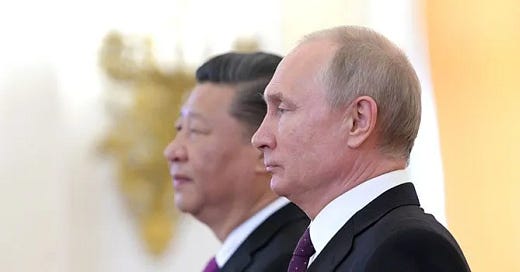The Estonian Foreign Intelligence Service just published its yearbook today. It treats many subjects we’ve written about at the Cosmopolitan Globalist: Russia’s military, internal politics and influence operations; China; terrorism; migration.
There’s an interesting section on Russian and Chinese vaccine diplomacy and the way Moscow’s promotion of anti-vaccine misinformation backfired: The idiots managed to persuade their own citizens that the vaccines were unsafe and consequently can’t control their own pandemic.
The report discusses Lukashenko and the manufactured border migration crisis, Russia’s climate policy, the effect of sanctions on Russia, the reach of the GRU, Russia’s cyber espionage—it’s all very comprehensive and very interesting.
How do they view the Russian leadership?
Russia’s leadership is increasingly confident that the social and political contradictions accompanying the pandemic will once and for all consign Western foreign policy, based on human rights and democratic values, to the dustbin of history. The world is returning to the past—back to “normalcy” as the Kremlin sees it—to politics based on the interests (or spheres of interest) of great powers. Soft power will be sidelined, and military capability along with the determination to use it will prevail. This situation favours authoritarian states whose leadership is not accountable to the free media and under no obligation to hold fair elections. The demands regarding security guarantees Russia made to NATO and the United States in December of 2021 are carried by this spirit and backed by the looming threat of military action along the Ukrainian border.
We think, based on what we read, that the Estonian Foreign Intelligence Service is quite on top of things. We’re also gratified that no one who reads the Cosmopolitan Globalist would be particularly surprised by their assessments.
But there was one chapter that we thought especially good. It showed the Russia-China relationship in a slightly different light than we have. We think they’re probably right to place the emphasis where they did. So we asked if we could publish it, and apparently, so long as we properly credit it, we can.
Here’s the part that caught our eye and made us think:
Read: The friendship between China and Russia is a masterfully crafted facade.
Thank you, Heyday for supporting this newsletter!
Today’s newsletter was brought to you by Heyday, a Chrome extension meant for distracted people—like the editor of this newsletter—who keep a thousand tabs open at once and forget where they put everything and what they were doing. Every time you search Google, Heyday checks to see if you’ve researched this topic before. If you have, it shows you what you’ve already seen (but forgotten). Check it out. (I did, and genuinely liked it—ed.)





